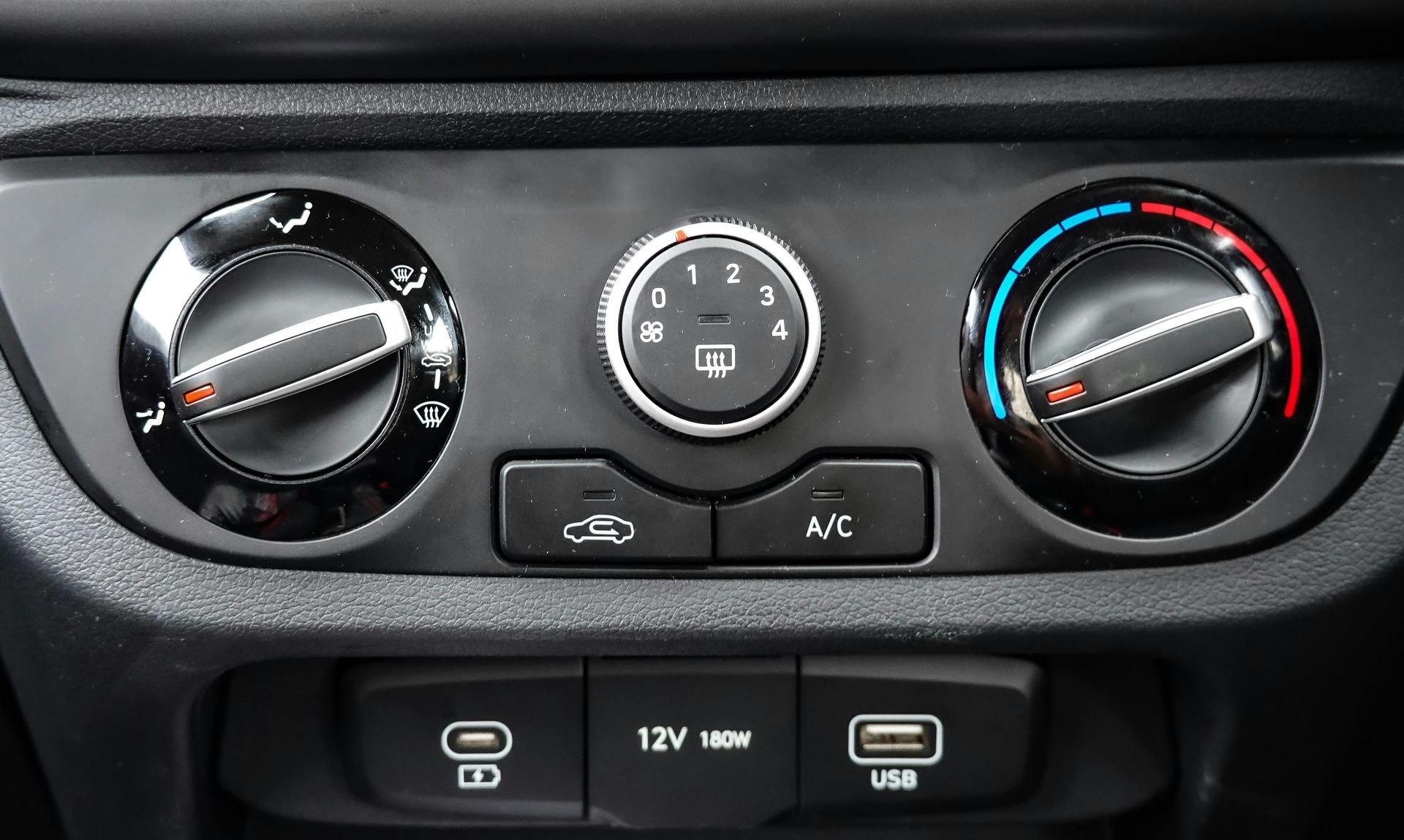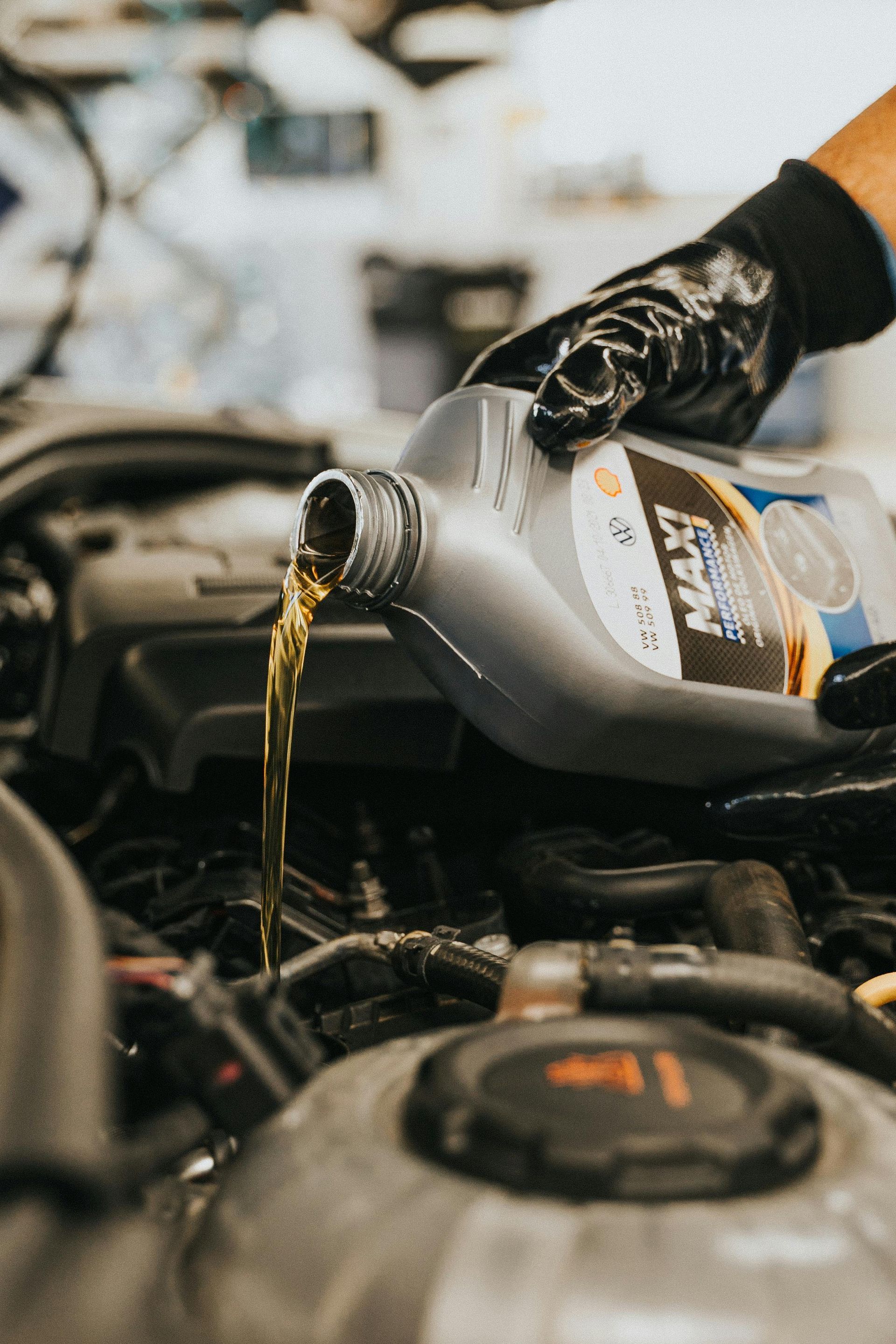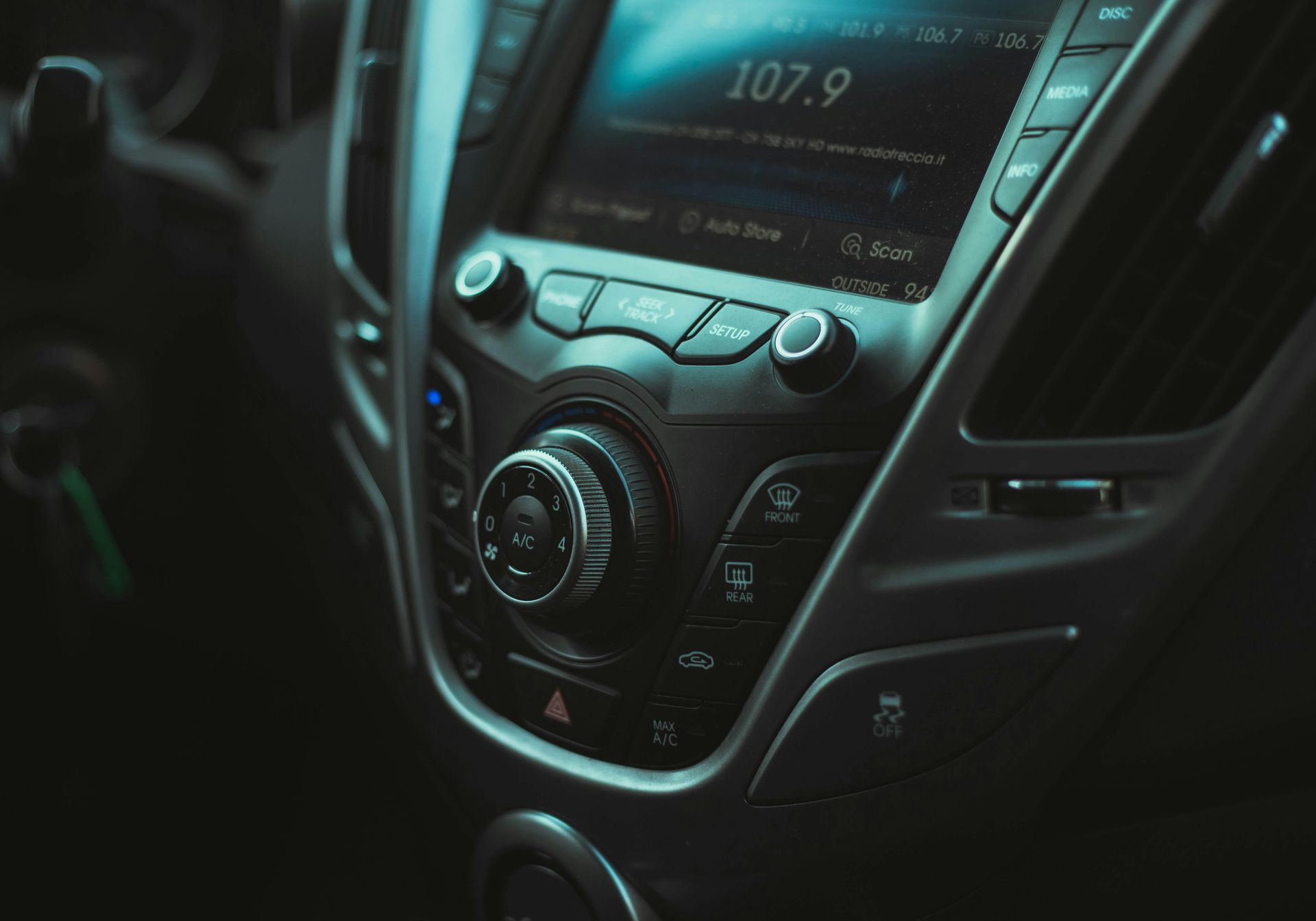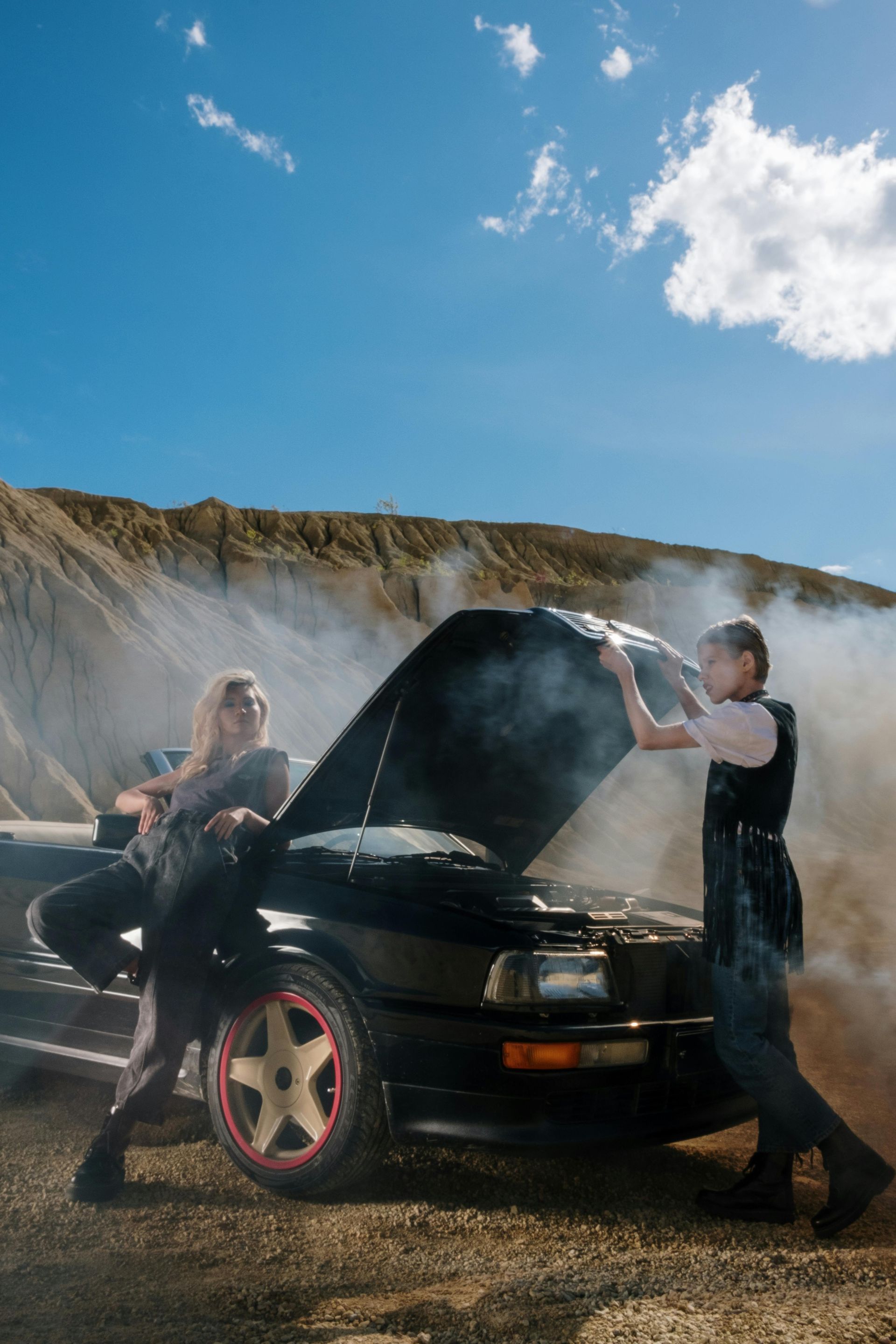Battery Health Checks: Your Defense Against Fall Breakdowns in Colorado Springs
Fall in Colorado Springs brings beautiful weather for mountain drives and outdoor adventures, but it also brings the conditions that cause more car battery failures than any other time of year. The combination of temperature swings, high altitude, and increased electrical demands can leave you stranded in a parking lot or on a remote mountain road when your battery gives up without warning.
Don't let a dead battery ruin your fall plans or leave you stranded when temperatures drop. Here's everything you need to know about keeping your battery healthy through Colorado's challenging fall season.
Why Fall Is Peak Battery Failure Season
Temperature shock: Colorado Springs can see 70-degree days followed by freezing nights during fall. These rapid temperature changes stress battery components and reduce their ability to hold a charge. A battery that starts your car fine on a warm afternoon might fail completely the next cold morning.
Chemical reaction slowdown: Car batteries rely on chemical reactions to produce electricity. When temperatures drop below 32°F, battery capacity drops by 20% or more. At higher elevations around Colorado Springs, this effect is even more pronounced.
Increased electrical demands: Fall brings shorter days, which means more use of headlights, heater fans, and defrost systems. These increased electrical loads stress an already weakening battery system.
High-altitude effects: Colorado Springs sits at 6,035 feet above sea level. The lower air pressure and temperature extremes at this elevation put additional stress on battery performance compared to sea-level conditions.
Recognize the Warning Signs Early
Your battery usually gives warning signs before it fails completely. Learning to spot these early indicators can prevent you from getting stranded.
Slow engine cranking: If your engine turns over more slowly than normal, especially on cold mornings, your battery is struggling. This is often the first sign of battery weakness.
Dim headlights: Headlights that seem dimmer than usual, especially when idling, indicate your battery isn't providing adequate power to your electrical system.
Dashboard warning lights: Battery or charging system warning lights are obvious indicators, but don't ignore other electrical warning lights that might signal battery problems.
Electrical issues: Power windows moving slowly, radio settings being lost, or interior lights dimming when starting the engine all suggest battery problems.
Corrosion buildup: White, blue, or green buildup around battery terminals indicates acid leakage and potential battery failure.
Test Your Battery Before Problems Start
Professional testing: Auto parts stores and service centers can test your battery's capacity and charging system performance. This is especially important before fall weather arrives in Colorado Springs.
Visual inspection: Check battery terminals for corrosion, cables for damage, and the battery case for cracks or swelling. Mountain driving and temperature extremes can cause physical damage to batteries.
Voltage testing: A healthy battery should read about 12.6 volts when the engine is off and 13.7-14.7 volts when running. Lower readings indicate problems.
Load testing: This professional test simulates the electrical demands of starting your car and reveals batteries that might fail under stress.
Colorado-Specific Battery Challenges
Elevation effects: The lower air pressure at Colorado Springs' elevation affects battery performance. Batteries work harder and may not last as long as they would at sea level.
Temperature extremes: Daily temperature swings of 40-50 degrees are common during fall. These extreme changes accelerate battery aging and reduce lifespan.
Dry climate: Colorado's low humidity can increase static electricity and affect battery performance. It also accelerates the evaporation of battery electrolyte.
Mountain driving demands: Frequent trips to higher elevations like Pikes Peak, Woodland Park, or Cripple Creek put extra stress on batteries due to altitude changes and increased electrical system demands.
Extend Your Battery Life
Keep terminals clean: Clean battery terminals monthly with a wire brush and baking soda solution. Apply terminal protectant spray to prevent future corrosion.
Secure battery properly: Vibration from rough mountain roads can damage battery internals. Make sure your battery is properly secured in its tray.
Limit short trips: Frequent short trips don't give your battery time to fully recharge. Take longer drives occasionally to maintain battery health.
Turn off accessories: Before shutting off your engine, turn off lights, radio, and other electrical accessories to reduce the load on your battery during the next startup.
Park smart: When possible, park in a garage or sheltered area to protect your battery from extreme temperature swings.
When to Replace Your Battery
Age matters: Most car batteries last 3-5 years under normal conditions. In Colorado's challenging climate, replacement every 3-4 years is more realistic.
Seasonal timing: Fall is actually the best time to replace an aging battery. You'll avoid the rush and higher prices that come during winter emergency replacement situations.
Performance testing: If your battery fails a load test or shows reduced capacity, replace it before it leaves you stranded.
Visual damage: Cracks, swelling, or excessive corrosion indicate immediate replacement needs.
Choose the Right Battery for Colorado
Cold cranking amps (CCA): This rating indicates how much power your battery can deliver in cold conditions. Colorado Springs drivers should choose batteries with higher CCA ratings than minimum requirements.
Reserve capacity: This measures how long your battery can run essential systems if your charging system fails. Longer reserve capacity is valuable for mountain driving where help might be far away.
Battery type considerations:
- Standard flooded batteries: Least expensive but require more maintenance
- AGM batteries: Better performance in extreme temperatures, maintenance-free
- Gel batteries: Excellent for extreme conditions but more expensive
Emergency Preparedness
Jumper cables: Keep high-quality jumper cables in your vehicle. In Colorado's remote mountain areas, you might need to help yourself or others.
Portable jump starter: Battery-powered jump starters can save you when no other vehicles are around. This is especially valuable for Colorado's backcountry adventures.
Emergency kit: Include a flashlight, warm clothing, and emergency supplies in case battery failure strands you in cold weather.
Know your routes: When driving to remote areas around Colorado Springs, let someone know your planned route and expected return time.
Professional Battery Services
Comprehensive testing: Professional battery testing checks not just the battery but the entire charging system, including alternator and voltage regulator performance.
Proper installation: Correct battery installation ensures proper connections and prevents problems that can damage your new battery.
Disposal services: Auto service centers properly dispose of old batteries and often provide core credits toward new battery purchases.
Warranty protection: Professional installation often includes warranty coverage that protects your investment.
Don't Wait for Failure
Battery problems always happen at the worst possible times. A dead battery doesn't care if you're running late for work, heading out for a weekend mountain adventure, or trying to get home during the first snowfall of the season.
Preventive replacement benefits:
- Choose your timing instead of having it chosen for you
- Avoid emergency service calls and higher costs
- Prevent getting stranded in dangerous locations
- Maintain reliable transportation through winter
Stay Powered Through Fall Adventures
Fall in Colorado Springs offers some of the year's best driving weather, from scenic mountain drives to daily commutes with stunning views. Don't let a failing battery keep you from enjoying everything the season has to offer or leave you stranded when temperatures drop unexpectedly.
Whether you're planning weekend trips to see fall colors in the mountains or just want reliable transportation through Colorado's unpredictable weather changes, a healthy battery is your first line of defense against roadside emergencies.
Schedule your battery test today. Our experienced technicians will thoroughly test your battery and charging system to ensure you're ready for fall and winter driving in Colorado Springs. We'll help you choose the right battery for Colorado conditions and install it properly to give you reliable starting power when you need it most. Don't wait for a dead battery to ruin your plans – get the peace of mind that comes with knowing your vehicle will start every time.












